Search the Special Collections and Archives Portal
Search Results
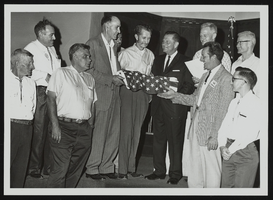
Howard Cannon presenting a flag to Dutch Underground Helpers: photographic print
Date
1959
Archival Collection
Description
From the Howard Cannon Photograph Collection (PH-00192)
Image
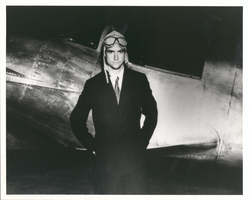
Photograph of Howard Hughes with Northrop Gamma Racer, January 1, 1936
Date
1936-01-01
Archival Collection
Description
Howard Hughes standing beside the Northrop Gamma Racer, January 1, 1936.
Image
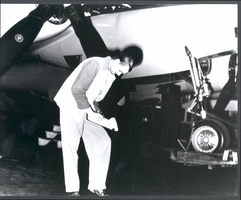
Photograph of Howard Hughes with the second XF-11, April 3, 1947
Date
1947-04-03
Archival Collection
Description
Howard Hughes signing the flight plan in front of the second XF-11.
Image
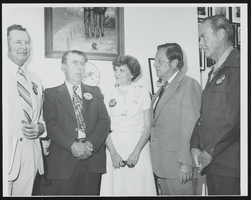
Howard Cannon meets with Nevada State Legislators: photographic print
Date
1989-10-13
Archival Collection
Description
From the Howard Cannon Photograph Collection (PH-00192). L to R: orm Glaser; Rick Blakemore; Karen Hayes; Howard W. Cannon; Don Moody
Image
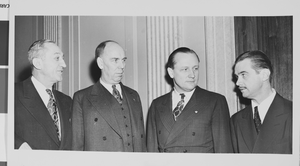
Photograph of Howard Hughes with Senate Committee, Washington, D.C., February 11, 1947
Date
1947-02-11
Archival Collection
Description
Description given with photo: "Hughes Has Session With Senate Committee, Washington, D.C. -- Howard Hughes, right, who met with members of the Senate War Investigating Committee Feb. 11, is shown after the secret session with senators Carl A. hatch (D. - N.M.), Owen Brewster (R. - ME.), and William F. Knowland (R. Calif.), left to right. Committee chairman Brewster told reporters Hughes discovered certain war contracts of his were under investigation and "asked to appear to discuss them informally with the committee." Credit Line (ACME) 2/11/47."
Image
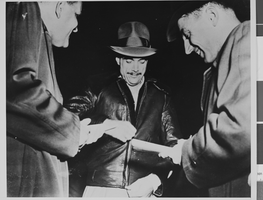
Photograph of Howard Hughes at hearing, Washington, D.C., November 07, 1947
Date
1947-11-07
Archival Collection
Description
Description given with photo: "Ready To Resume Stand At Contract Inquiry, Washington, D.C. --- Millionaire plane builder Howard Hughes, center, arrived in Washington today with "New Information" to put before the Senate War Investigating Committee and said he hoped he would be given a fair opportunity to present his "side of the case." Hughes is shown with newsmen after he landed at Washington National Airport. INP Photo by G.B. Kress. 11/07/47."
Image

Photograph of Howard Hughes amongst a crowd in Chicago, Illinois, 1938
Date
1938
Archival Collection
Description
A view of Howard Hughes emerging from the Lockheed 14 aircraft after landing it in Chicago.
Image
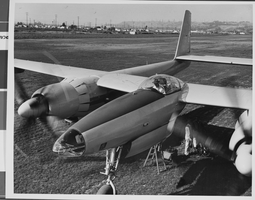
Photograph of Howard Hughes' XF-11, California, circa 1946
Date
1946
Archival Collection
Description
A view of Howard Hughes sitting in his XF-11 near Culver City, California.
Image
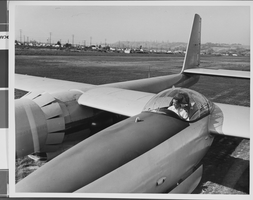
Photograph of Howard Hughes' XF-11, California, circa 1946
Date
1946
Archival Collection
Description
A view of Howard Hughes sitting in his XF-11 near Culver City, California.
Image
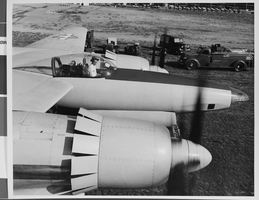
Photograph of Howard Hughes' XF-11, California, circa 1946
Date
1946
Archival Collection
Description
A view of Howard Hughes sitting in his XF-11 near Culver City, California.
Image
Pagination
Refine my results
Content Type
Creator or Contributor
Subject
Archival Collection
Digital Project
Resource Type
Year
Material Type
Place
Language
Records Classification
